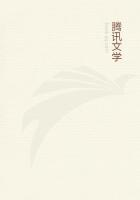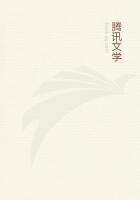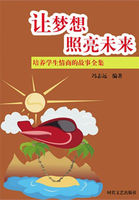Boileau, having survived the friends and rivals of his youth, old, deaf, and melancholy, lived in retirement, seldom went either to Court or to the Academy, and was almost inaccessible to strangers. Of the English and of English literature he knew nothing. He had hardly heard the name of Dryden. Some of our countrymen, in the warmth of their patriotism, have asserted that this ignorance must have been affected. We own that we see no ground for such a supposition. English literature was to the French of the age of Lewis the Fourteenth what German literature was to our own grandfathers. Very few, we suspect, of the accomplished men who, sixty or seventy years ago, used to dine in Leicester Square with Sir Joshua, or at Streatham. with Mrs.
Thrale, had the slightest notion that Wieland was one of the first wits and poets, and Lessing, beyond all dispute, the first critic in Europe. Boileau knew just as little about the Paradise Lost, and about Absalom and Achitophel; but he had read Addison's Latin poems, and admired them greatly. They had given him, he said, quite a new notion of the state of learning and taste among the English. Johnson will have it that these praises were insincere. "Nothing," says he, "is better known of Boileau than that he had an injudicious and peevish contempt of modern Latin; and therefore his profession of regard was probably the effect of his civility rather than approbation." Now, nothing is better known of Boileau than that he was singularly sparing of compliments. We do not remember that either friendship or fear ever induced him to bestow praise on any composition which he did not approve. On literary questions his caustic, disdainful, and self-confident spirit rebelled against that authority to which everything else in France bowed down. He had the spirit to tell Lewis the Fourteenth firmly and even rudely, that his Majesty knew Nothing about poetry, and admired verses which were detestable.
What was there in Addison's position that could induce the satirist, Whose stern and fastidious temper had been the dread of two generations, to turn sycophant for the first and last time? Nor was Boileau's contempt of modern Latin either injudicious or peevish. He thought, indeed, that no poem of the first order would ever be written in a dead language. And did he think amiss?
Has not the experience of centuries confirmed his opinion?
Boileau also thought it probable that, in the best modern Latin, a writer of the Augustan age would have detected ludicrous improprieties. And who can think otherwise? What modern scholar can honestly declare that he sees the smallest impurity in the style of Livy? Yet is it not certain that, in the style of Livy, Pollio, whose taste had been formed on the banks of the Tiber, detected the inelegant idiom of the Po? Has any modern scholar understood Latin better than Frederic the Great understood French? Yet is it not notorious that Frederic the Great, after reading, speaking, writing French, and nothing but French, during more than half a century, after unlearning his mother tongue in order to learn French, after living familiarly during many years with French associates, could not, to the last, compose in French, without imminent risk of committing some mistake which would have moved a smile in the literary circles of Paris? Do we believe that Erasmus and Fracastorius wrote Latin as well as Dr.
Robertson and Sir Walter Scott wrote English? And are there not in the Dissertation on India, the last of Dr. Robertson's works, in Waverley, in Marmion, Scotticisms at which a London apprentice would laugh? But does it follow, because we think thus, that we can find nothing to admire in the noble alcaics of Gray, or in the playful elegiacs of Vincent Bourne? Surely not. Nor was Boileau so ignorant or tasteless as to be incapable of appreciating good modern Latin. In the very letter to which Johnson alludes, Boileau says--"Ne croyez pas pourtant que je veuille par la blamer les vers Latins que vous m'avez envoyes d'un de vos illustres academiciens. Je les ai trouves fort beaux, et dignes de Vida et de Sannazar, mais non pas d'Horace et de Virgile." Several poems, in modern Latin, have been praised by Boileau quite as liberally as it was his habit to praise anything. He says, for example, of the Pere Fraguier's epigrams, that Catullus seems to have come to life again. But the best proof that Boileau did not feel the undiscerning contempt for modern Latin verses which has been imputed to him, is, that he wrote and published Latin verses in several metres. Indeed it happens, curiously enough, that the most severe censure ever pronounced by him on modern Latin is conveyed in Latin hexameters. We allude to the fragment which begins "Quid numeris iterum me balbutire Latinis, Longe Alpes citra natum de patre Sicambro, Musa, jubes?"
For these reasons we feel assured that the praise which Boileau bestowed on the Machinae Gesticulantes and the Gerano Pygmaomachia, was sincere. He certainly opened himself to Addison with a freedom which was a sure indication of esteem. Literature was the chief subject of conversation. The old man talked on his favourite theme much and well, indeed, as his young hearer thought, incomparably well. Boileau had undoubtedly some of the qualities of a great critic. He wanted imagination; but he had strong sense. His literary code was formed on narrow principles; but in applying it, he showed great judgment and penetration. In mere style, abstracted from the ideas of which style is the garb, his taste was excellent. He was well acquainted with the great Greek writers; and, though unable fully to appreciate their creative genius, admired the majestic simplicity of their manner, and had learned from them to despise bombast and tinsel. It is easy we think, to discover, in the Spectator, and the Guardian: traces of the influence, in part salutary and in part pernicious, which the mind of Boileau had on the mind of Addison.


